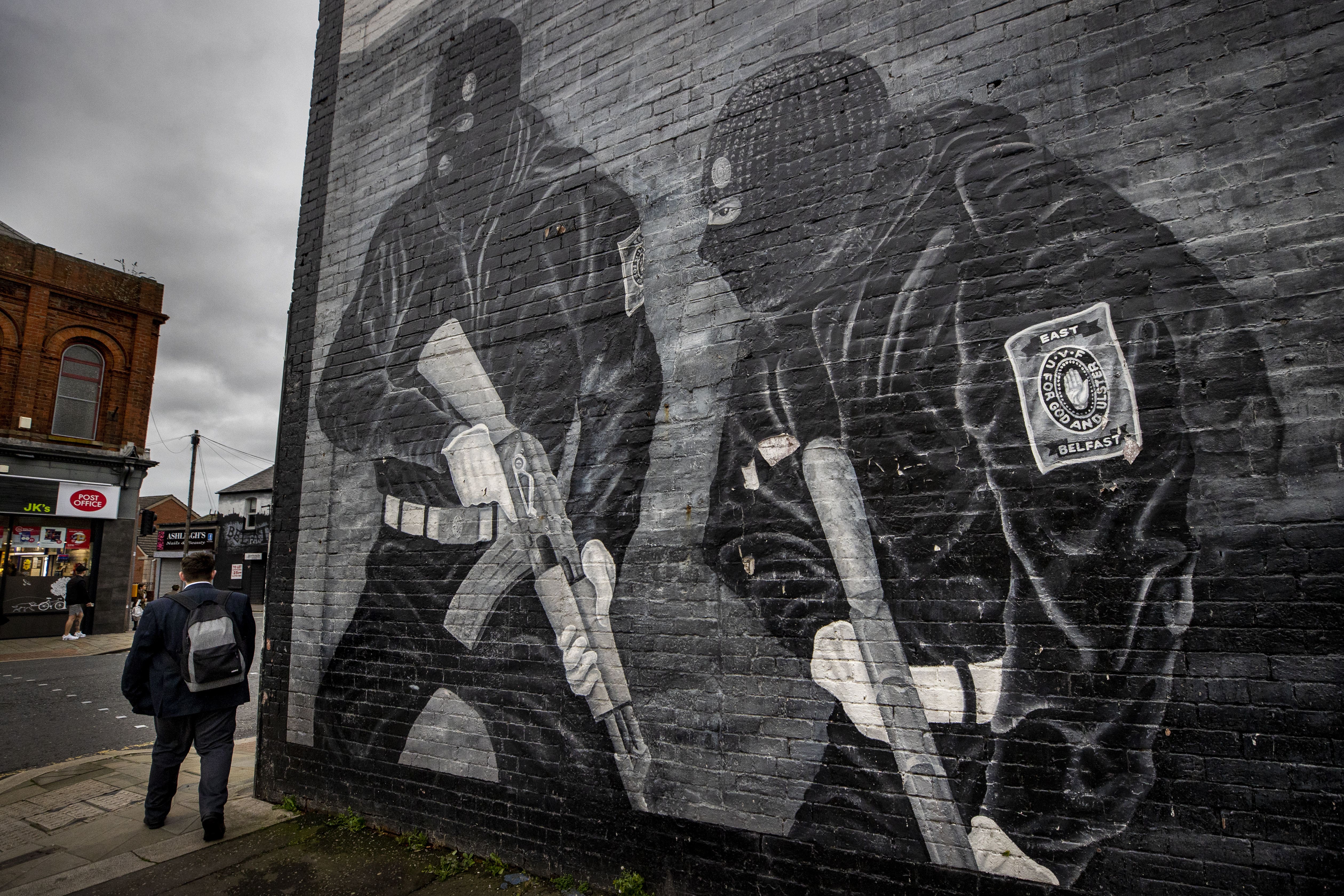Formal engagement process with paramilitaries recommended by commission
The body published its fifth report on Wednesday on progress towards ending paramilitarism in Northern Ireland.

Your support helps us to tell the story
From reproductive rights to climate change to Big Tech, The Independent is on the ground when the story is developing. Whether it's investigating the financials of Elon Musk's pro-Trump PAC or producing our latest documentary, 'The A Word', which shines a light on the American women fighting for reproductive rights, we know how important it is to parse out the facts from the messaging.
At such a critical moment in US history, we need reporters on the ground. Your donation allows us to keep sending journalists to speak to both sides of the story.
The Independent is trusted by Americans across the entire political spectrum. And unlike many other quality news outlets, we choose not to lock Americans out of our reporting and analysis with paywalls. We believe quality journalism should be available to everyone, paid for by those who can afford it.
Your support makes all the difference.A formal process of engagement with paramilitary groups in Northern Ireland has been recommended to end paramilitarism in the region.
The British and Irish governments, political parties and civic society has been urged to give urgent consideration to a “comprehensive process of group transition”.
Almost 25 years on from the Good Friday/Belfast peace agreement, paramilitary groups remain on the scene in Northern Ireland.
The Independent Reporting Commission (IRC), set up in the 2015 Fresh Start Agreement, publishes annual reports on progress towards ending paramilitary activity.
In its fifth report, the IRC, led by commissioners John McBurney, Monica McWilliams, Tim O’Connor and Mitchell Reiss, described a “mixed year” in terms of efforts to bring paramilitarism to an end.
They said political tensions around the Northern Ireland Protocol as sparking speculation about the potential for a resurgence of paramilitary activity, adding a “number of paramilitary-related incidents served to heighten that speculation”.
The IRC said paramilitarism is a “complex landscape” involving some who use it as a cloak for criminality, as well as others including dormant members, those who feel they cannot leave and some who stay involved for political and identity reasons who regard their involvement as “being driven by the needs and perspective of their community”.
“This category also contains people, including at leadership level in some of the groups, who articulate a positive wish to see paramilitarism ended,” they added.
However, they said overall their view has not altered that the continuing existence of paramilitary groups and structures “mean that paramilitarism remains a clear and present danger in and for Northern Ireland”.
The IRC praised the work of the PSNI in tackling paramilitarism but reiterated its view that a wider process is required to end paramilitary activity.
Concern was voiced at the absence to date of a plan to address the continuation of structures and infrastructure of paramilitarism.
The IRC said they believe this would be best addressed by a process of engagement with paramilitary groups “with a view to group transition and disbandment”.
“We remain firmly of the belief that a formal process of engagement is needed with the paramilitary groups if group transition and disbandment are to be achieved,” they said.
“We urge the two governments, the Northern Ireland parties and civic society to give urgent consideration to a comprehensive process of Group Transition, building on models from elsewhere, including the concept of DDR (Disarmament, Demobilisation and Reintegration).
“In addition, we believe there would be merit in preparing the ground for a formal process.
“This could be done, for instance, by the governments appointing (with the support of the Executive) an independent person who would be authorised to speak to the various interested parties, including the paramilitary groups themselves.”
They also recommended the introduction of organised crime legislation and urged the Stormont Executive to make this a priority in the next mandate.The IRC emphasised that long-term commitment and comprehensive focus is needed.
They concluded: “Overall, we believe there are grounds to be encouraged by the progress made. However, there is no doubting the scale of what still remains to be done.
“We reiterate that there is now an opportunity as the 25th Anniversary of the Belfast/Good Friday Agreement approaches to re-double efforts at all levels to achieve the vision of that agreement of a Northern Ireland free of paramilitarism and based entirely on the principles of peace and democracy.”